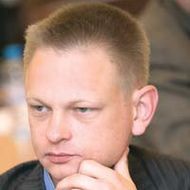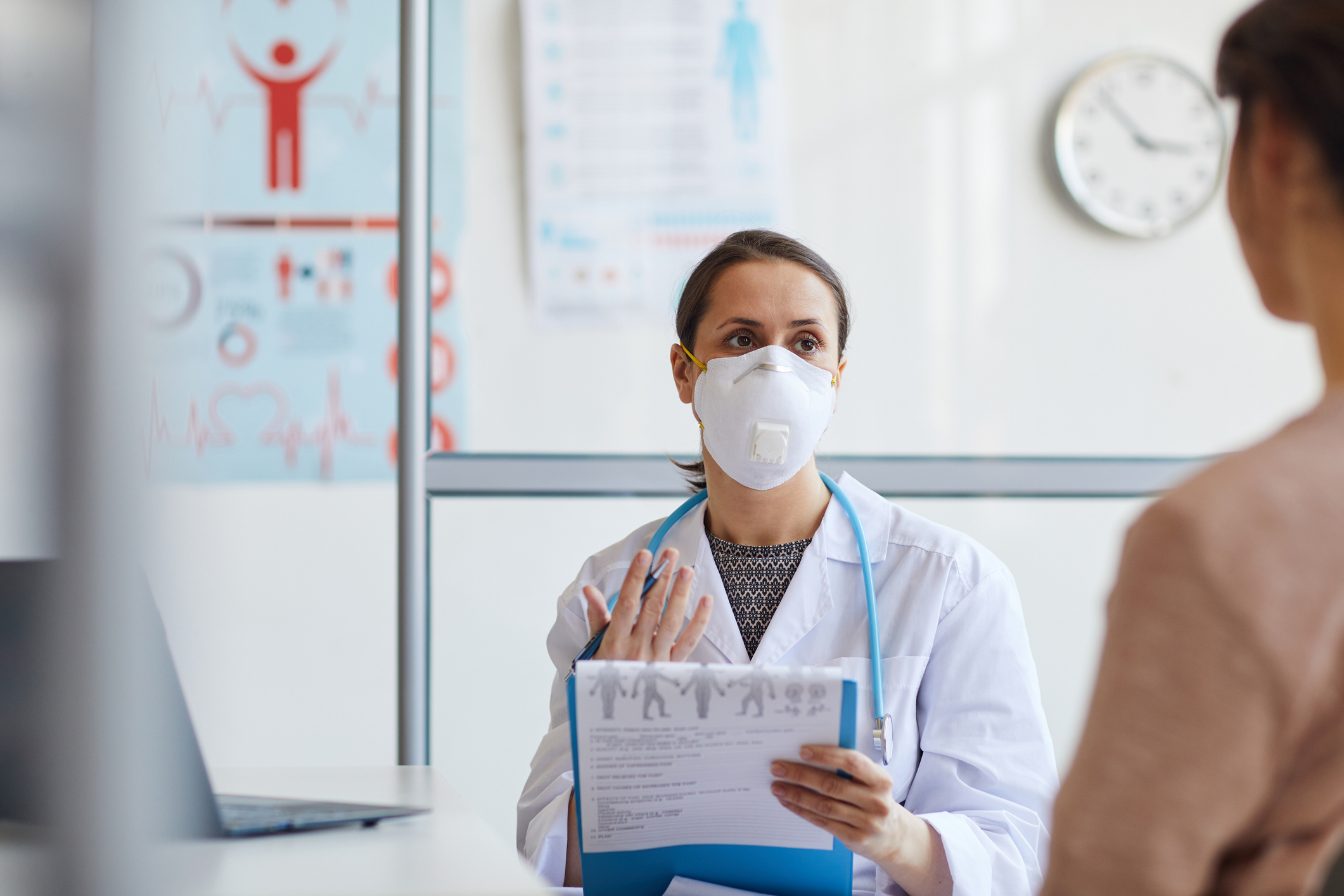Russia Is Among the Leaders of the Global COVID-19 Pandemic Response Efficiency Index

In a recent study, HSE University researchers analyzed and ranked the responses of 48 countries to the coronavirus pandemic. National responses were evaluated with regard to three factors: medical care, social support, and economic support. Among the 48 analyzed countries, Russia placed 7th, while Australia became the leader.
The Institute for Public Administration and Governance and Office for Expert Analysis at HSE University conducted a study of how successfully different countries have combated the COVID-19 epidemic, and the researchers created an index to illustrate the efficacy of each country’s response.
Andrey Zhulin, HSE University Vice Rector and Director for Expert Analysis

‘Over the past several months, hundreds of research teams across the world have been studying the coronavirus, government responses to it, and public attitudes to it. We understand that we may face similar challenges in the future and, therefore, we need to have integrated assessments of countries’ resilience to such stresses. This index is one such assessment. We must know our strengths and weaknesses and be ready to consider the best practices of the rating’s leaders.’
The researchers studied national responses in terms of three crucial dimensions: healthcare (i.e., the performance of health systems and the number of lives saved), social support (i.e., supporting incomes, preserving jobs, and ensuring the accessibility of education is accessible), and economic support (i.e., mitigating the damage to the economy).
For every dimension, certain components for assessment were identified and composite ratings were generated which served as the basis of the aggregate ranking. The initial sample included 48 countries with a combined population of about 6.35 billion people (82.5% of the world’s population).
In the overall ranking, Russia scored 68 points out of a 100, making it the 7th most efficient country in its response to the coronavirus crisis after Australia (78 points), Poland (75), Japan (74), the Czech Republic (74), Germany (73) and Austria (70). In terms of healthcare, Russia ranks 6th (with 77 points; Australia tops this category as well); in terms of social support, Russia places 18th (with 72 points), and in terms of economic support it places 12th (with 57 points). Germany is the highest-ranking country in the social rating, while the USA leads in economic indicators.
Russia’s high position in the healthcare rating is accounted for by its high performance in almost all indicators of the category. For instance, with respect to its health system capacity (i.e., the number of hospital beds, physicians, and medical personnel per 100,000 people), Russia placed 6th. With regard to the number of administered COVID-19 tests, Russia is second only to the UK, with Israel placing third. ‘Large-scale testing is one of the ways to contain the virus,’ the study suggests.

In regard to the ‘peak load’ indicator, i.e., the maximum number of new cases during 30 days per 100,000 people, which was considered by the healthcare rating, Russia placed in the middle tier of the list. ‘In particular, restrictive measures introduced by the Russian Government have helped to flatten the peak in the infection rate. That is why, in the peak load rating, Russia’s placement is higher than when overall incidence rates are compared,’ the rating’s authors note.
With regard to COVID-19-associated mortality rates, Russia ranks among the countries with a low death toll per 100,000 people (fewer than 5 deaths). At the same time, Belgium was hit the hardest in terms of the death count, with over 30 deaths per 100,000 people, and the UK and Spain following immediately after. The lowest number of fatalities is observed in China, Australia, Japan, and South Korea. It should be noted that official mortality rates have been adjusted for population age structures, which, in turn, give due consideration to demographic differences between the countries.
In the social rating, Russia ranks highest for the ‘changes in employment’ component, which shows how effective the efforts of both the state and business have been in stabilizing the job market. ‘Thanks to government relief measures, Russia has managed to avoid significant job cuts—from March to May 2020, fewer than 1.1 million jobs were lost in the country. Russia placed 6th in the world for job market support, with Poland and some other countries in Western Europe ranking higher,’ the study indicates. At the same time, expert evaluations show that Russia has seen a significant drop in consumer demand, which is evidence of a serious decline in incomes. In addition, prices for medication and personal protective equipment (i.e., masks, hand sanitizers, disinfectants) have gone up.
In order to gauge the response of educational systems during the pandemic, a special aggregate rating was created. This rating considers attributes such as technology for maintaining academic processes, administering exams and tests in schools, and so on. For this indicator, Russia ranks in the second group of most successful countries, while Austria, Germany, Israel and Canada are the leaders in this category.
In the economic rating, Russia’s highest positions are in the business activity improvement category (in which it ranks 6th out of 23 countries, for which respective PMI indices are calculated; Australia ranks first in this category), changes in the local mobility (8th place, with Sweden placing first); and changes in transport connectivity where Russia places second, after China). In terms of stability of internet infrastructure, Russia placed in the middle tier of the rating (20th), and for the sizes of fiscal stimuli for the economy, Russia placed 30th (the International Monetary Fund determined that the size of the Russian anti-crisis programme amounted to 3.4% of its GDP).
All primary data used for calculations, along with the ratings, are available in a special repository on Github. ‘Disclosure of primary data and calculation results will make them accessible for use by other researchers. It also meets the latest requirements for information transparency,’ says study co-author Marcel Salikhov of the HSE University Institute for Public Administration and Governance.
See also:
HSE Biologists Explain Mechanism behind Coronavirus Evolution
A team of researchers, including scientists of the HSE Faculty of Biology and Biotechnology, have analysed the evolutionary path of the coronavirus from the Wuhan variant to Omicron. Their findings indicate that many genomic mutations in SARS-CoV-2 are shaped by processes occurring in the intestines and lungs, where the virus acquires the ability to evade the inhibitory effects of microRNA molecules. The study findings have been published in the Journal of Medical Virology.
Russian Researchers Explain Origins of Dangerous Coronavirus Variants
HSE researchers, in collaboration with their colleagues from Skoltech and the Central Research Institute for Epidemiology, have uncovered the mechanisms behind the emergence of new and dangerous coronavirus variants, such as Alpha, Delta, Omicron, and others. They have discovered that the likelihood of a substitution occurring at a specific site of the SARS-CoV-2 genome is dependent on concordant substitutions occurring at other sites. This explains why new and more contagious variants of the virus can emerge unexpectedly and differ significantly from those that were previously circulating. The study’s findings have been published in eLife.
HSE Biologists Prepare Strategy for Universal COVID Test
Russian researchers have developed a strategy to create a cheap and rapid COVID-19 test based on isothermal amplification. According to their publication in Applied Biochemistry and Microbiology, use of this strategy will make it possible to create universal test systems for any of the COVID-19 variants.
People’s Values Affect Their Attitudes to COVID-19 Restrictions
HSE social and political analysts have established which value models and circumstances promote support for restrictive government policies aimed at combatting the coronavirus pandemic. The research is published in Plos One.
Model of Predator-Prey Relationship Helps Predict Spread of COVID-19
Researchers from the HSE Faculty of Economic Sciences have proposed a mathematical model that describes the course of the COVID-19 pandemic, taking into account the restrictions applied in different countries. The model will help governments make reasonable and timely decisions on introducing or lifting restrictions. The paper was published in Eurasian Economic Review.
HSE University Classes to Be Held On Site for All Students
Classes in the new academic year will take place on site for students of all HSE University campuses. Existing COVID safety precautions will remain in effect.
Russian Scientists Investigate the Immune Response to SARS-CoV-2 Variants
HSE University researchers assessed the effectiveness of the T-cell immune response to 11 variants of SARS-CoV-2. Their findings have been published in Nucleic Acids Research.
First-year Students Will Be Able to Get COVID Shots at HSE University
The new regulations ‘On the Organization of Studies for the 2021/2022 Academic Year’ feature in detail what will change for first-year students in the new academic year. HSE University will be organizing a vaccination drive in September for students aged 18 and over who are unvaccinated. Younger students will be eligible for vaccination once they turn 18.
New Safety Measures to Be Introduced at HSE University
Starting September 1, 2021, HSE University-Moscow is introducing new safety policies on campus to prevent the spread of COVID-19. They apply to students over 18 years old who have not had COVID during the last six months, have not been vaccinated (with a Russian or a foreign vaccine), nor have a medical exemption from vaccination. Free vaccination will be available on campus to all arriving students.
HSE University Creates the Viral Genealogy Simulator to Model the Spread of COVID-19
Researchers of HSE Tikhonov Moscow Institute of Electronics and Mathematics (MIEM), in cooperation with their colleagues from the University of California, Santa Cruz (UCSC), and The European Bioinformatics Institute (EMBL-EBI), have developed software to model the spread of the COVID-19 global pandemic. This is the world’s fastest Viral Genealogy Simulator (VGsim). For more details about this scalable simulator, read the reprint on medRxiv. The code is freely available at GitHub.


